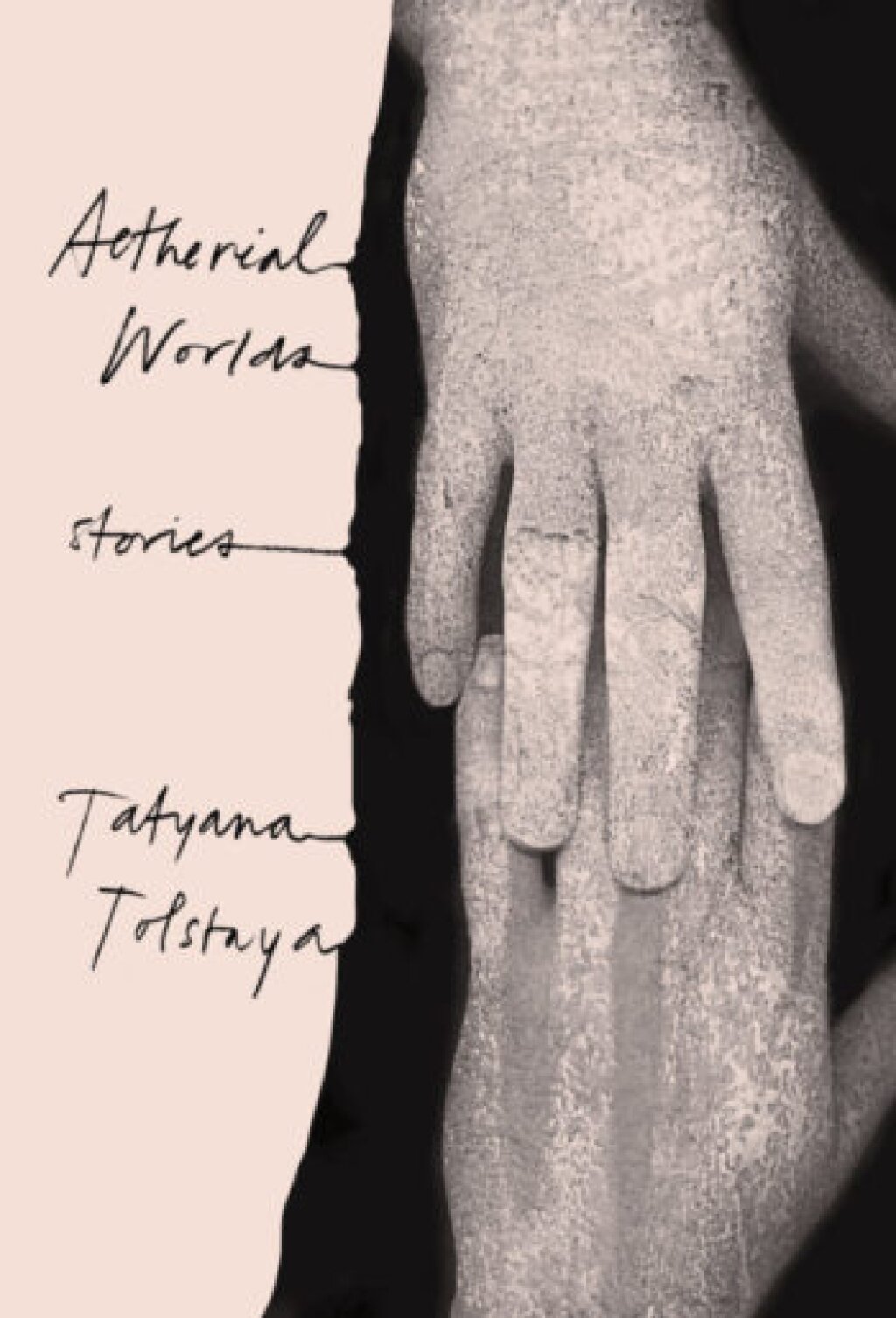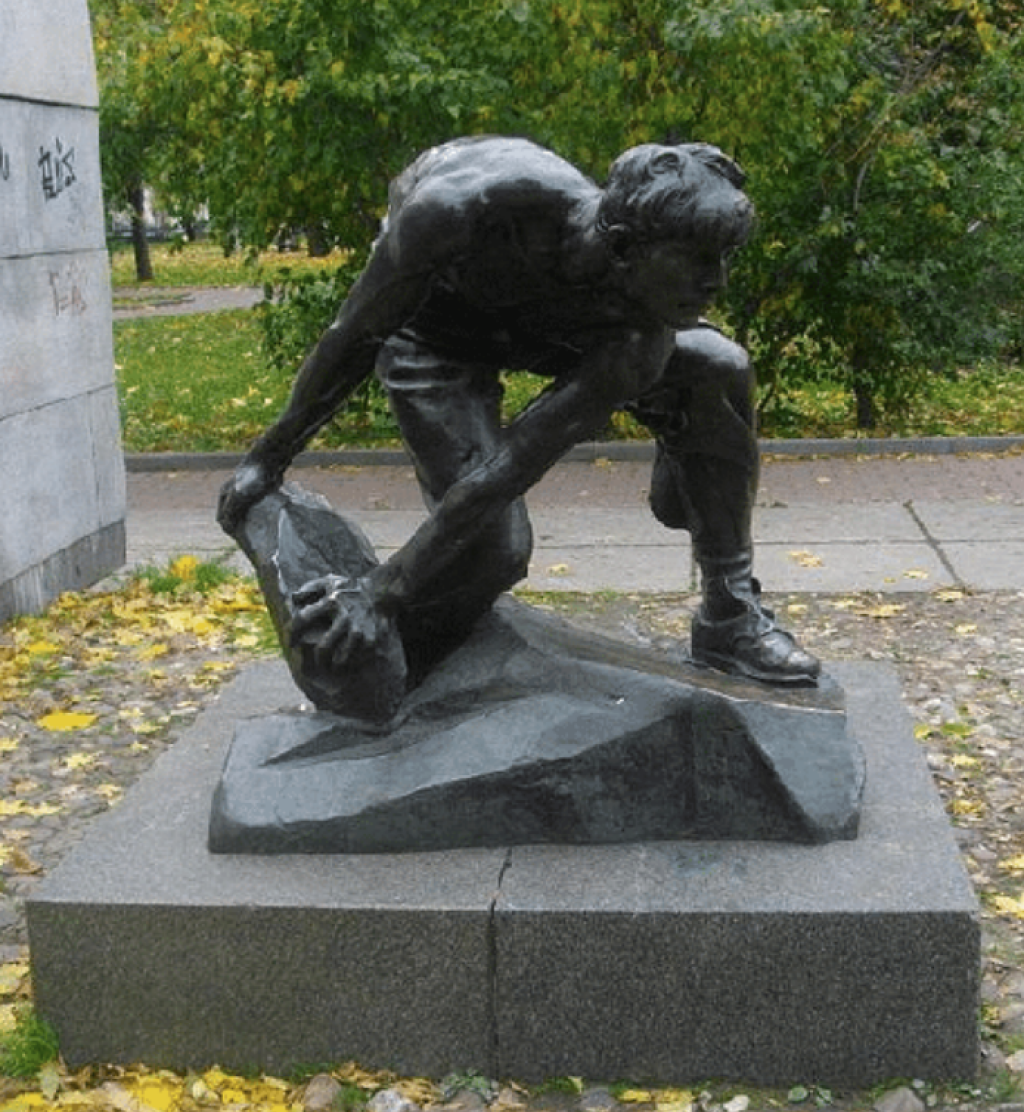Today at 6 PM, the Jordan Center will host a conversation with Russian writer Tatyana Tolstaya, who will discuss her new volume of short stories in translation, Aetherial Worlds. In anticipation of Tolstaya's visit, All the Russias is pleased to feature a taste of the collection: the short story "Aspic." Aetherial Worlds, translated by Anya Migdal, is out now from Knopf.
Truth be told, I’ve always been afraid of it, since childhood. It’s prepared not casually, or whenever the fancy strikes you, but most often for New Year’s Eve, in the heart of winter, in the shortest and most brutal days of December.
Darkness comes early. There is a damp frost; you can see spiky halos around the streetlamps. You have to breathe through your mittens. Your forehead aches from the cold, and your cheeks are numb. But, wouldn’t you know it, you still have to boil and chill the aspic—the name of the dish itself makes the temperature of your soul drop, and no thick gray goat-hair shawl will save you. It’s a special kind of religion, making the aspic. It’s a yearly sacrifice, though we don’t know to whom or for what. And what would happen if you didn’t make it is also a question mark.
But, for some reason, it must be done.
You must walk in the cold to the market—it’s always dim there, never warm there. Past the tubs with pickled things; past the cream and the crème fraîche, redolent of girlish innocence; past the artillery depot of potatoes, radishes, and cabbages; past the hills of fruit; past the signal lights of clementines—to the farthest corner. That’s where the chopping block is; that’s where the blood and the ax are. “Call Russia to the Ax.” To this one right here, digging its blade into a wooden stump. Russia is here, Russia is picking out a piece of meat.
“Igor, chop up the legs for the lady.” Igor lifts his ax: hack! Lays out the white cow knees, cleaves the shanks. Some buy pieces of the muzzle: lips and nostrils. And those who like pork broth—they get little pig feet, with baby hooves. Holding one of those, touching its yellow skin, is creepy—what if it suddenly shook your hand in return?
None of them are really dead: that’s the conundrum. There is no death. They are hacked apart, mutilated; they won’t be walking anywhere, or even crawling; they’ve been killed but they are not dead. They know that you’ve come for them.
Next it’s time to buy something dry and clean: onions, garlic, roots, and herbs. And back home through the snow you go: crunch, crunch. The frosty building entryway. The lightbulb has been stolen again. You fumble in the dark for the elevator button; its red eye lights up. First the intestines appear in the elevator’s wrought-iron cage, then the cabin itself. Our ancient Saint Petersburg elevators are slow; they click as they pass each floor, testing our patience. The chopped-up legs in the shop- ping bag are pulling your arm down, and it seems as if at the very last moment they’ll refuse to get into the elevator. They’ll twitch, break free, and run away, clacking across the ceramic tile: clippity-clop, clippity-clop, clippity-clop. Maybe that would be for the best? No. It’s too late.
At home, you wash them and throw them into the pot. You set the burner on high. Now it’s boiling, raging. Now the sur- face is coated with gray, dirty ripples: all that’s bad, all that’s weighty, all that’s fearful, all that suffered, darted, and tried to break loose, oinked and mooed, couldn’t understand, resisted, and gasped for breath—all of it turns to muck. All the pain and all the death are gone, congealed into repugnant fluffy felt.
Finito. Placidity, forgiveness.
Then it’s time to dump this death water, to thoroughly rinse the sedated pieces under a running faucet, and to put them back into a clean pot filled with fresh water. It’s simply meat, simply food; all that was fearsome is gone. A calm blue flower of propane, just a little bit of heat. Let it simmer quietly; this is a five- to six-hour undertaking.
While it cooks, you can take your time preparing the herbs and the onions. You’ll be adding them to the pot in two batches. First, two hours before the broth is done cooking, and then, again, an hour later. Don’t forget to stir in plenty of salt. And your labor is done. By the end of the cooking cycle, there will have been a complete transfiguration of flesh: the pot will be a lake of gold with fragrant meat, and nothing, nothing will remind us of Igor.
The kids are here; unafraid, they are looking at the pot. It’s safe to show them this soup—they won’t ask any tough questions.
Strain the broth, pull the meat apart, slice it with a sharp knife, as they did in the olden days, in the age of the tsar, and the other tsar, and the third tsar, before the advent of the meat grinder, before Vasily the Blind, and Ivan Kalita, and the Cumans, and Rurik, and Sineus and Truvor, who, as it turns out, never even existed.
Set up the bowls and the plates and place some fresh-pressed garlic in each one. Add the chopped-up meat. Use the ladle to pour over it some thick, golden, gelatinous broth. And that’s that. Your job is done; the rest is up to the frost. Carefully take the bowls and plates out to the balcony, cover the coffins with lids, stretch some plastic wrap over them, and wait.
Might as well stay out on the balcony, bundled up in your shawl. Smoke a cigarette and look up at the winter stars, unable to identify a single one. Think about tomorrow’s guests, remind yourself that you need to iron the tablecloth, to add sour cream to the horseradish, to warm the wine and chill the vodka, to grate some cold butter, to place the sauerkraut in a dish, to slice some bread. To wash your hair, to dress up, to do your makeup—foundation, mascara, lipstick.
And if you feel like senselessly crying, do it now, while nobody can see you. Do it violently, about nothing and for no reason, sobbing, wiping away your tears with your sleeve, stubbing out your cigarette against the railing of the balcony, not finding it there, and burning your fingers. Because how to reach this there and where this there is—no one knows.
From the book AETHERIAL WORLDS by Tatyana Tolstaya, copyright © 2018 by Tatyana Tolstaya. Published by arrangement with Alfred A. Knopf, an imprint of The Knopf Doubleday Publishing Group, a division of Penguin Random House LLC.



